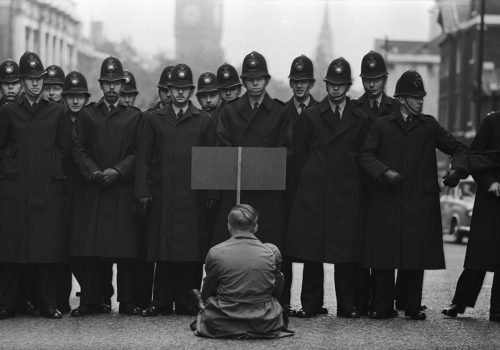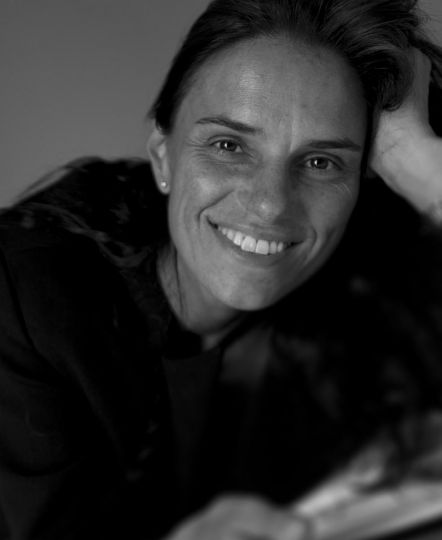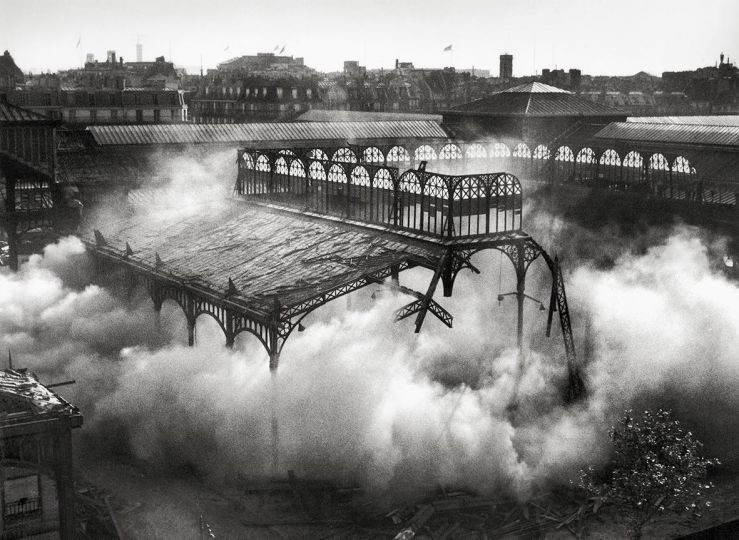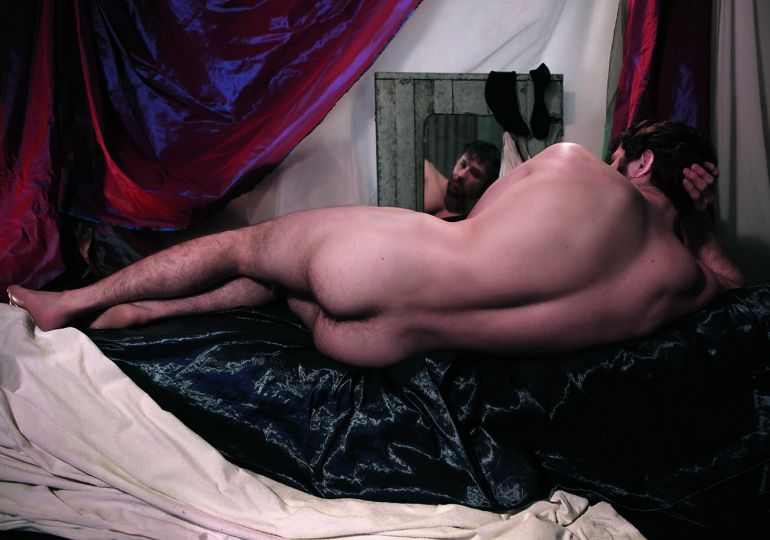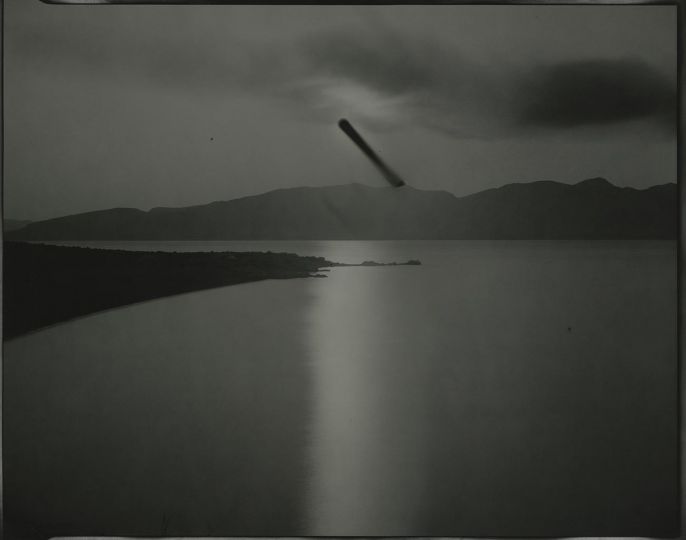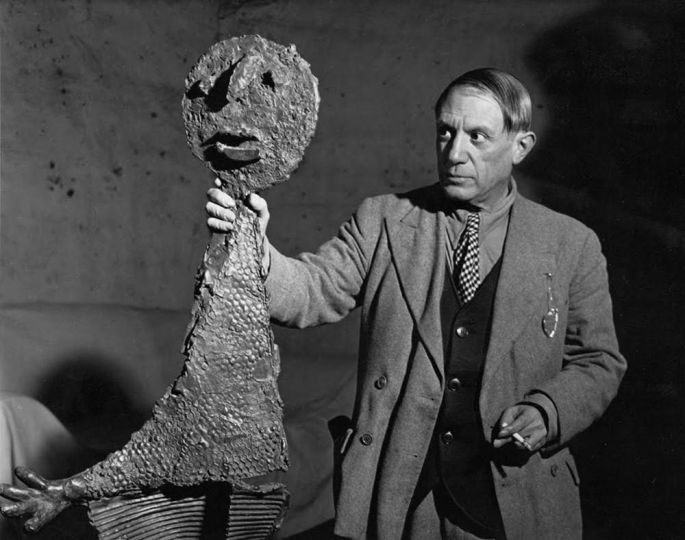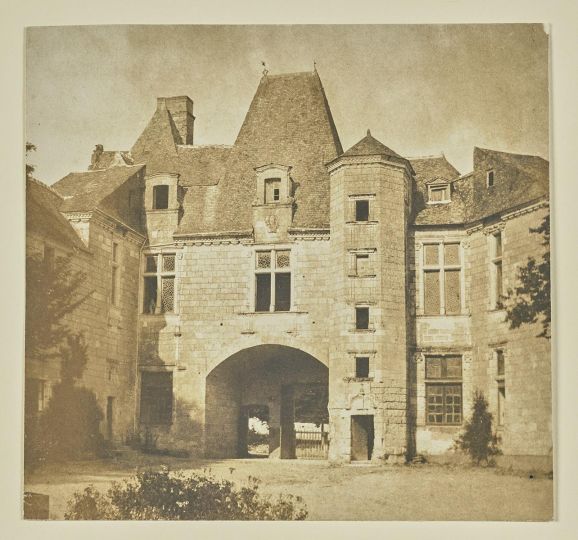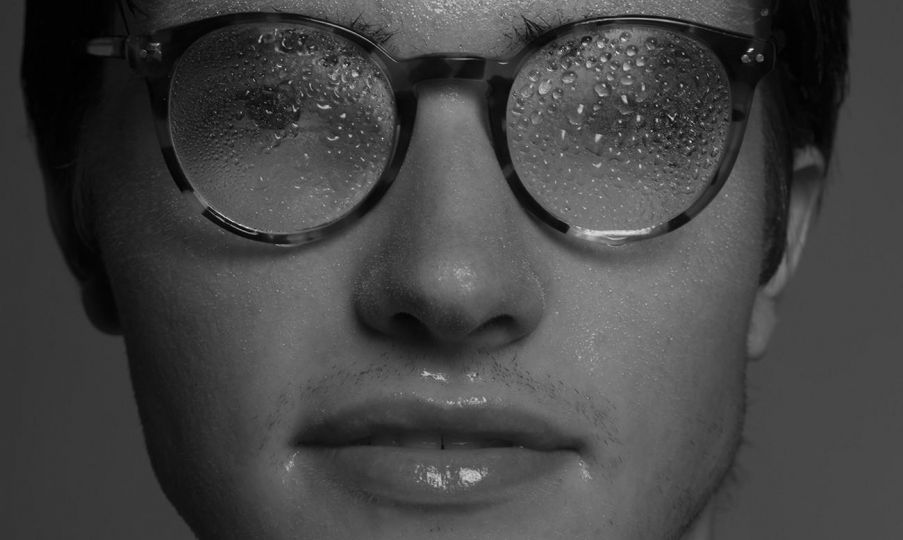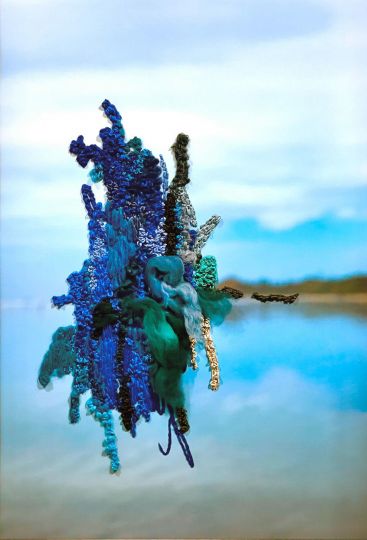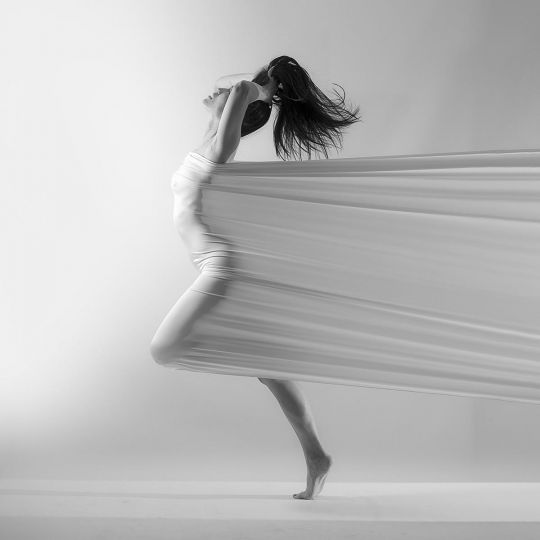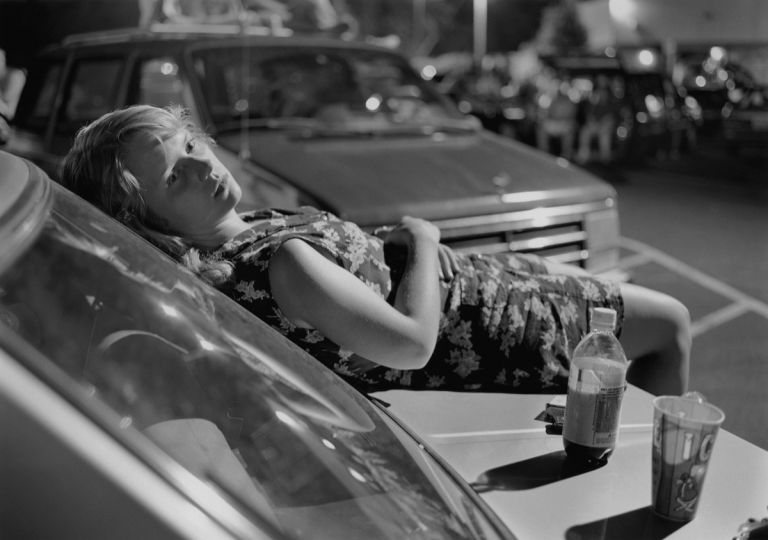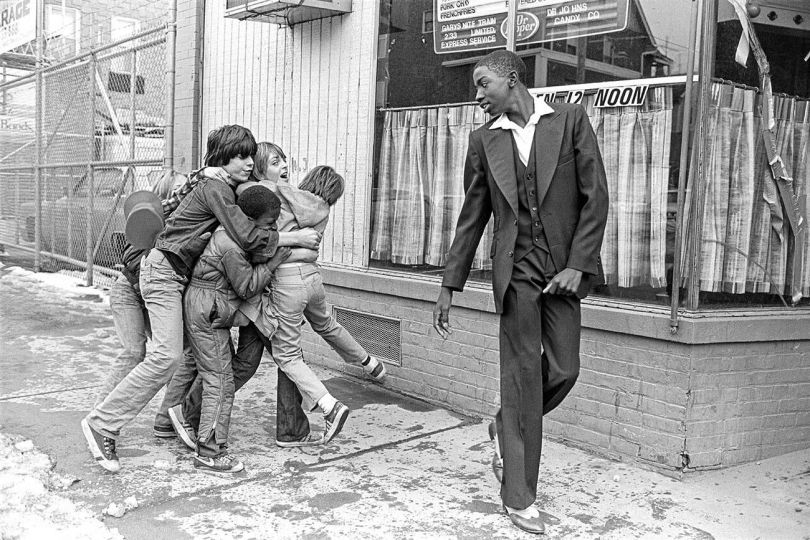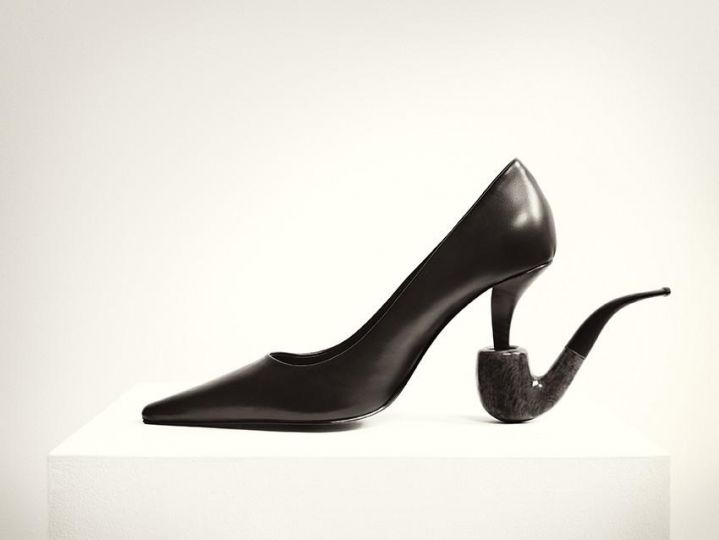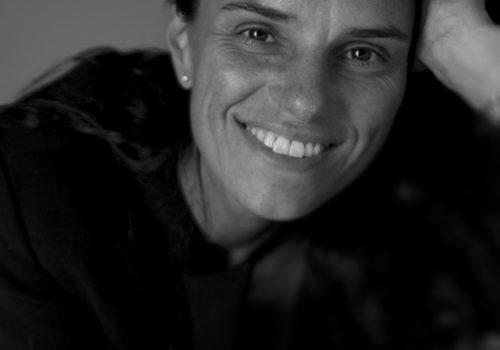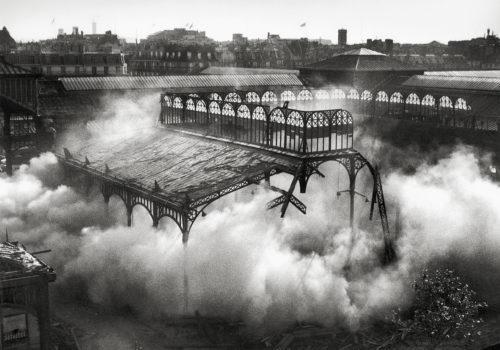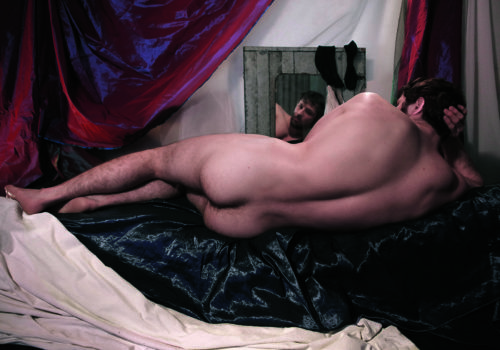Last Thursday at Howard Greenberg opened an exhibition of Don McCullin. Donald is one of the photographers who impressed me the most. More than 40 years ago, for Photo, I spent two days in London with him for one of his first interviews. Here it is !
Lebanon: McCullin and death by Jean-Jacques Naudet
The face of a facetious kid, a sympathetic rascal with a heart of gold, a grumbler and a fighter: this the first impression of Donald McCullin.
In the halls of the Sunday Times, he behaves like a schoolboy, plays tricks, hops, irreverently salutes everyone, teases the secretaries. At forty-one, he seems barely thirty. He is one of the greatest war photographers, if not the best.
And then, there is his second face, the one that is made of silence, modesty, silent questions. Fascinated by the worst, by death, by human stupidity, he set out to hunt them down daily. He has always found them.
Both sides of the character are true but the first one conceals the second.
McCullin speaks little about himself and his work. On the occasion of his reportage in Lebanon, he nevertheless agreed to talk about his job, without makeup, without emphasis, without false modesty especially.
“When I arrived in a plane over Beirut, the Holiday Inn was in flames. Well, Don, did I think, you did well to come, you’ll have something to do. It has been a year since I swore daily not to go to war any more, and each time, I give in.
The day before, the Sunday Times editor had called me: ” you really don’t want to go, Don? “. I called him back five minutes later. The face of my wife, sitting next to me, became sad. She understood.
The news fascinates me. At home, near London, I listen to all the news bulletins, I read all the newspapers. In short, I found myself in this fucking plane and when I saw the smoke rising over Beirut, I knew that I was right, that I had made the right decision.
At the airport, a Lebanese soldier asked for my name. ” Why ? did I reply. – We want to make sure you arrive at your hotel without problems. We kidnap people here in the streets. “. I took a taxi. The driver was nervous, worried.
For thirty seconds I called myself an asshole. “Four hours ago you were in a wonderful English village. You have a pretty house, you have three children and a woman you love, and you come here to clown. ”
At the first shot, the spleen disappeared. When I arrived at the hotel, I met the usual war correspondents.
“McCullin’s here, kids, that’s a bad sign. This is a traditional joke, but it is true that I arrive when everything goes bad!
When I go somewhere, it’s because there are things going on that are not very beautiful. I do not go there for pleasure, to “see the country” but to show, to testify.
At first, yes, it excited me, now it’s over.
The suffering, the misery brought by wars, cease very quickly to be exciting. Wars destroy everything.
I have covered them all for twelve years: Vietnam, Cambodia, Biafra, Congo, Angola, Israel, Cyprus, etc.
Often, I went back several times. I am not joking but I want to be the best . I do not go there to record a cliché sensation, but to fix images of these people, these human beings caught in the most tragic circumstances. I am naive.
When I bring back my photos to England and they are published, I would like to say to my fellow citizens: “You who have an easy life, look at that. This man is black, Arab, yellow or Jewish, but he’s your brother and see what he’s going through. ”
When I came back from Biafra, I was nauseated at the memory of the kids who were starving. I could not stand to see my three kids leave something on their plate. “You must finish everything,” I ordered! Of course, I was wrong. They did not understand.
I always make this mistake, I try to impose, to show at all costs the most horrible pictures. It’s silly.
People refuse to see them and reject them, despite themselves sometimes.
Photography is communication between people, a testimony offered, not a coup de force.
Twelve years of war, of all wars, I wasted my time.
Over the years, each civil war or guerrilla warfare became more atrocious than the previous one. I am preparing for a sinister old age …
Finally, let’s go back to Beirut.
To the correspondents on the spot, I asked for a summary of the situation.
When I arrive on a battlefield, I behave a lot like the bather who is about to dive. I undress and I get wet. To know better how is the water, if there is current …
I like to have a complete panorama of what is happening ( front lines, forces in presence, strategic places). I’m a professional and I have to stay that way to survive.
For each conflict, in general, we are one hundred and fifty.
Always the same, the mercenaries of horror. For me, they are like a story to avoid. I want to be alone, float, sail away from them. I hate being accompanied. I do not need anyone. I want to avoid the reflections or the considerations of others. Mine is enough for me. Being the witness, the voyeur of a man agonizing, is shameful enough like that. Let’s avoid the public. If I were really logical with myself, I would be a doctor, a nurse, but surely not a photographer.
In Beirut, after having a summary of the situation, I left and went alone. I said to a colleague, “If in five days I have not returned, start worrying. ”
I went to see the soldiers of the phalanges and Christian militia. “Can I sleep and stay with you for some time? They let me wait for five hours. I did not move an inch. I am very good at this game. I can wait longer than anyone. Two days, three days if necessary and without getting impatient. They offered me coffee and cakes. I thanked them.
Politeness helps in photography.
I do not like the loudmouth, the dissatisfied.
I always got what I wanted in this world. Not kicking or shouldering, but with my brain and my heart. It might be acting like an old whore but it works.
Five hours later, they gave me their agreement: “Tonight you can go to the Holiday Inn” This is their headquarters.
In the evening, accompanied by soldiers, I left. Crossing the street, in front of the hotel, they turned around and said: “there will be machine gun fire. Are you are afraid ? – No, I replied. ”
We ran, the bullets whistled. Once again, I thought I was stupid, then it passed.
When we entered the hotel, it was starting to burn. Because of the fighting, we could not go to the rooms, we had to stay in the corridors. “Hey you, do you want a glass of champagne? A fat man with a mustache asked. His name was Georges. He was a gangster and carried a huge knife. His henchman was playing the hunting horn at the windows to impress the Arabs who were attacking the hotel. We were in a film by Fellini.
A very beautiful girl who looked like Maria Schneider and whose name was Jocelyne sat next to me. We discussed part of the night. In the early morning, I returned to the headquarters of the Falangists. Shells, rockets, bullets, mortars exploded everywhere. I was not afraid. I was not afraid anymore.
It was the first time in over two years since I was ambushed in Cambodia.
At the headquarters, soldiers told me, “Come with us, we will attack an Arab neighborhood.” At the entrance to a house, a soldier called a small cat, cut off his head, cut off his legs and nailed him to an electric pole. His lesson ! He asked me what I thought of his act. I said, “I do not like it – you’re going to see a big battle now. It can be dangerous, there is still time to leave. – I came for that. But I thought, “Mate, you have a big mouth but you’re scared. I’ve probably seen more corpses and wounded than you will have dinners in your whole life and I know you’re scared. ”
The battle had started. While I was photographing, I was thinking about my chickens. I love them. Every morning, I go get the eggs and feed them. I love gardening, too.
Bullets ricocheted on the walls. After a while, I got up. “Are you afraid, Don? – No. I continued, I felt very well. I slept in the morgue at night. There was a strange odor, reinforced by the moist, humid heat. In the morning, a phalangist offered me food. I am always hungry, in war situations, hungry and I want to urinate. Nerves maybe. In the middle of a fight I urinate at least fifteen times a day.
At eleven o’clock, the Arab quarter was taken. The corpses piled up. Women and children were screaming in a nearby house. Suddenly, two Falangists shot them. I backed out retching. A little further, a soldier stopped me: “If you photograph this scene, I kill you. I said OK. I already had the pictures.
Once, I was with Gilles Caron in Biafra. We were following a commando tasked with attacking a federal garrison.The leader was a foul character named Hannibal.
At the end of the offensive, he ordered to kill all the prisoners who were crying. Gilles and I looked at each other without saying anything. All day we walked in silence, without exchanging a single word. In the early morning, Gilles had only one sentence. “You know, I hate this swine …”
When I saw this same scene in Lebanon, I thought back to what Gilles had said. As usual, I did not make a move. The show was horrible. All day long, the Christian phalanxes had machine gunned the Palestinian slums. The soldiers separated the men from the women and put them in a corner, it was easy to imagine the fate that awaited them. Then I went out to the Arab neighborhoods. At a Palestinian checkpoint, I made a huge blunder. I presented the Falangists’ pass and not my press card. The soldiers became mad with rage. “He’s a Christian spy,” they cried. Shoot him down immediately! I became nervous. A senior officer arrived, more understanding. I explained myself. “Avoid such an error in the future because next time …”, he concluded simply. On the fighting front, Muslims did not accept journalists or photographers. I went through small alleys that I knew.
The troops of the phalanx seemed to have been mad. All non-Christians had been slaughtered. Heaps of corpses littered the streets. I had never seen such a spectacle. Usually, in the war, there are corpses here and there. Here, whole groups were mown down with machine guns. I thought I was at the Valentine’s Day massacre in Chicago.
A Phalangist approached, I had met him the day before at the Holiday Inn. ” Hello ! Don, do you want chocolates? Come to this shop, it is ours now. – No, I do not like chocolate. In fact, it’s wrong, I’m crazy about sweets. But the plundering side of their activity ruffle me. I am a mercenary, in a sense, but not a corpse robber.
Let me explain. When someone says, “We’re fighting over there,” I want to be the first to arrive. I will do everything for that, I will jostle my colleagues if necessary. But I impose certain laws. I’m not interested in profit, only photography matters. Some here in England say that I make money by covering the war. It’s wrong. It is necessary to show these atrocities and it is not a source of profit.
Do you know rich war photographers? Not me.
I respect the rules. I do not steal, I do not loot, I do not provoke the event.
I’m the passer-by, the witness, that’s all.
This offer to fill my pockets with chocolates was worse than absurd: insulting.
On the other side of the street, soldiers were torturing prisoners. One of them had the tip of a knife on his throat. “You are not a man, you have four daughters and no sons. How do you want to be a man, if you do not have a son? The terrified prisoner nodded.
I continued to follow the Christian phalanges. Soldiers all over the world have the same behavior. They love you being there when the battle rages, they think you will run away. If you stay, they immediately adopt you, offer you to share their food or drink. Once, after a day of fighting in Vietnam, an American soldier turned to me: “Hey, you’re still here, are you? Do you have something to eat? – No. So he prepared a real holiday meal with an incredible number of military rations for both of us. When I am offered food, I always accept, even if my bag is stuffed with provisions. I have always been afraid of being hungry. When I am in combat, I have to eat, otherwise I lose my temper.
When I arrived in Vietnam, during the Tet offensive, I had absolutely nothing with me, no blankets, no clothes, nothing. I took everything from the depots of the wounded soldiers: helmet, blanket, jacket, vest, gourd. Sometimes the clothes were stained with blood, but that does not frighten me. I am not a fetishist.
When you enter the arena of death, your morality, your professional ethics, your personality must be quiet. The only time I feel ashamed is when I do not help a wounded person who has fallen beside me.
In Biafra, with Caron, it happened often. It was impossible for us to carry a man for twenty-five kilometers in the jungle and marshes. As soon as a man fell, he was finished and he knew it.
The Federals were on our heels and we left him.
That is something I have a hard time to accept but it is necessary to play the game until the end. It’s not worth it, when you’re a gladiator, to jump into the arena to beg permission to go out ten minutes later. When one is afraid of being eaten by lions, one stays at home.
I have only one obsession: to stay alive.
For twelve years I have been learning all the tricks necessary for this purpose. I started in Cyprus in 1964. It was my first chance. Proud and arrogant as a beginner, I thought I was the chosen one, the only one who could do the reporting because I was not afraid. It is in Cambodia that for the first time I met fear. I was following a vanguard patrol of American soldiers. The officer had advised me not to go, I ignored him. One kilometer further, was an ambush. Men fell, dead or wounded. I plunged into the water to the neck. A bullet hit the Nikon I held in my hand (I kept it as a trophy). I was paralyzed by fear. Still, I did not know what to do. I started to crawl in the mud, on my back, to keep my cameras dry. Two corpses of dead Vietcongs passed by in the water nearby. I crawled 200 meters: it is long, very long. I prayed to God, I thought of my family. When I thought I was out of range, I came out of the muddy water and started running. The bullets whistled. I used all my energy to run and I did not feel like I was moving forward. My legs were leaden, as in a bad dream. When I joined the troop, I kept quiet for a quarter of an hour. Smirking, the officer was looking at me. I tried to smile. He had been fucking right!
An hour later, they went back to attack, I went with them. Question of challenge, no doubt. It was exciting. Okay, it’s disgusting to talk like that, but it’s true. There is a certain schizophrenia of gambling and adventure. I had barely gone a hundred meters that fear overtook me. I was paralyzed, lying on the ground, eating dirt. ” Screw you ! I said to the soldiers who wanted to lift me up. Finally, I recovered.
That day, I was scared; and a week later, I was injured in the legs during an ambush. The same thing happened to Phillip Jones Griffiths on the Golan Heights. It took me two years to recover. Two years of nightmares where, second by second, I relived the same scene. Today, it’s better and I continues to photograph corpses. I said, one day, that every time I would see a dead soldier or a dead civilian, I would be his spokesman. It’s not stupid messianism. It’s a refusal. I want to be able to scream every time: “Look what you did to him! You did not have the right! It has nothing to do with good conscience. I do not want to be the moralizer of humanity. Soljenytsin does it for us, and he’s definitely better than me. He’s a great man, this gentleman. I fully share his point of view. He is an intellectual, I am an accident. I had no intention of becoming a photographer. It was chance. I had a camera and one day I shot a gangster’s fight in London, when a police officer was killed. Overnight, I was promoted photographer. In fact, I was nothing at all. So I learned, looking at the work of Henri Cartier-Bresson, Eugene Smith, Atget and Stieglitz. I have a computer brain. That’s the only thing I really enjoy. I have a visual elephant memory. I immediately forget the scenario of a film, the subject of a novel, but never an image. All those I have seen, even if only once, are definitely recorded in my memory.
At fifteen, I was thrown out of school for disability. I had a hard time reading, remembering a text, learning a lesson. I ended up working on the railways. But, an image, I never forget it. Today, all this has become a little too systematic. I feel the need to change, otherwise my photos will be completely outdated. That’s why I’m working on a book about England. To find a new vision, a new approach.
I am not fascinated by death, contrary to what is said. Any way I’m no longer. Death is too boring. It’s the end of the road, the final goodbye. It’s sinister. I did not become a petty bourgeois, but I am beginning to enjoy being with my wife and my children and drink a bottle of wine. I today I like cozy and comfortable beds. In the past, I dreamed of waking up in the jungle. I tried. It’s horrible and not romantic at all. I dreamed of sleeping in the desert. It is very uncomfortable. I covered all the wars of this last decade.
My dream when I was a child was to walk on the Great Wall of China. That too, I did it.
At fourteen, when my father died, I was very unhappy. I had no future. I wanted to become someone, if only for him. I had received no training, education, , and I was childless.
Today, I have a wonderful family, a house, I’ve published a book, some people know my name and I’m still alive.
I like this destiny. There are two sides of me. One, wise and reasonable, tells me to stay at home with my family; the other, crazy, stupid, forces me to leave for Lebanon. As long as the first will not have overthrown the second, it will be so. I may need another big fear, another injury.
In Vietnam, when I fell into the ambush, I thought my sex had been hurt. My lower abdomen was covered with blood. I was terrified. When I took off my pants and saw that my cock was safe and sound, I burst out laughing, happy. I think I’m lucky.
People think that someday I will be killed. In the meantime, I’m still here.
Whenever I arrive somewhere, there is always a colleague who photographs me. Each of them is convinced that this will be my last portrait. What is most terrifying in a war are the mines. They are invisible, unpredictable, inevitable death.
In Cambodia, I saw soldiers jumping on mines. The bodies are shredded. It was a dirty war, that of Cambodia. One night, I saw a two-year-old baby amputee in a hospital. The man who cut his arm with a saw was not even a doctor. Will I continue for a long time? I do not know. I’m getting old. I want to be the best war photographer, as you are the best actor. I miss a lot of things. My mind is fast, my body is less, but I want to continue to show, to testify. I do not care about the judgment of others. At the slightest criticism, I’m like the ostrich. I plunge my head into the sand. Loneliness scares me today.
A photographer is often alone. How many times have I been alone in a hotel bed, alone at breakfast, alone at meals? Often, I walk at night to kill time. During the day, loneliness disappears. You have to work. What will I become ? I do not know.
I’m tired of being stopped at checkpoints, at roadblocks, being searched for a yes, or for a no, I seem to be made for trouble.
Even here in England, at the airport, I am still searched. When I go to my bank, the same for six years, the employee always checks that my check was not stolen. I talked about it to the director the other day. Coldly, he replied, “You are too emotional, Mr. McCullin. “.
I always have a lot of trouble with the London cops. Yesterday, I was arrested by a plainclothes policeman. ” What are you doing ? Why do you look in parked cars? – This is none of your business. The story ended at the police station. It’s my mug I cannot change it.
My children do not look like me at all. They have faces of angels, like my wife. They believe that I am God.
When I’m at home, they can not do enough for me. I try to create a certain atmosphere of relaxation and derision. If something happened to me, they would be upset and look like the people I photographed a thousand times. I said to my wife, “If anything happens to me, do not be sad, do not be unhappy. With the money I leave, have a good time with the kids, but most importantly never give my negatives to anyone.
“It’s my philosophy. Good? Bad? It’s mine… “.
(Interview by Jean-Jacques Naudet)
I thank Pierre Gouzou, a reader who sent me this text when I did not have an original issue of Photo.
Don McCullin
September 11 – November 16, 2019
Howard Greenberg Gallery
41 East 57th Street, Suite 1406, New York

